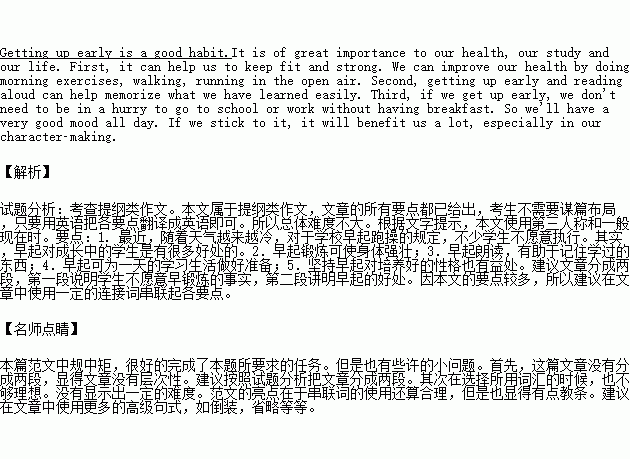��Ŀ����
�������
�������������Խ��Խ�䣬����ѧУ�����ܲٵĹ涨������ѧ����Ը��ִ�С���ʵ������Գɳ��е�ѧ�����кܶ�ô��ġ��������������ʾдһƪ������������Ķ��ġ�
1�����������ʹ����ǿ׳��
2�������ʶ��������ڼ�סѧ���Ķ�����
3�������Ϊһ���ѧϰ������������
4���������������õ��Ը�Ҳ���洦��
ע�⣺����100���ҡ� ��ͷ�Ѹ������������ܴ�����
�ο��ʻ㣺�Ը� (character)
Getting up early is a good habit.
��ϰ��ϵ�д�
�����Ŀ

